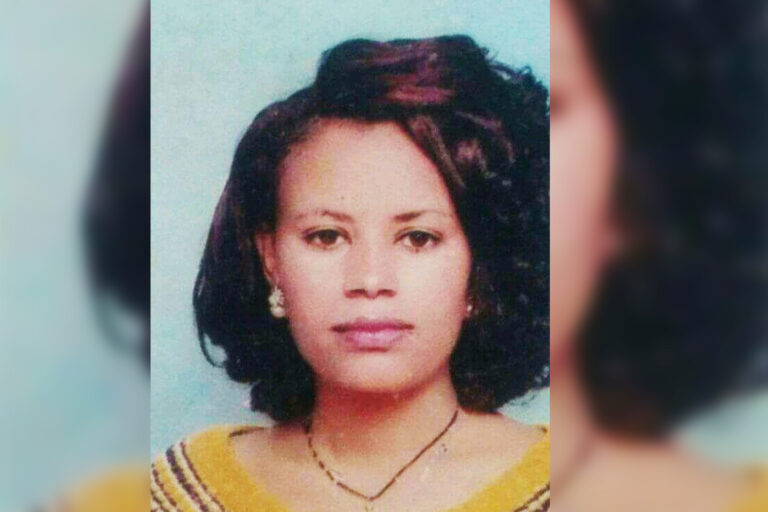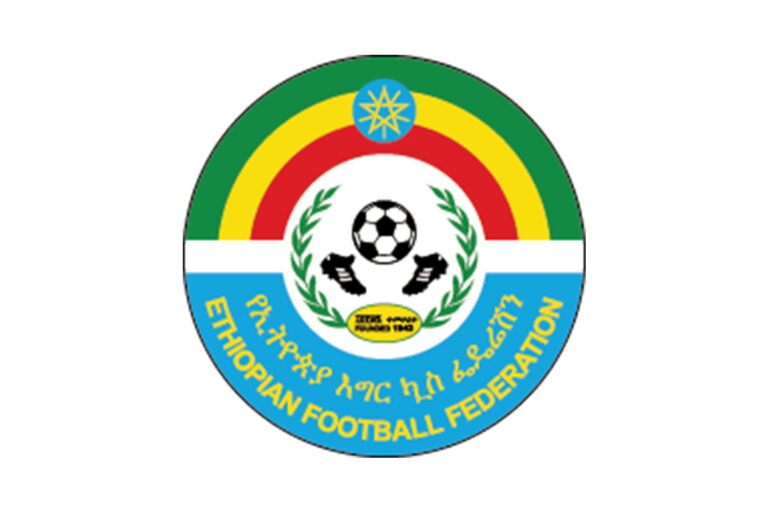Realness Institute, which has helped foster the new wave of Africa’s filmmaking talent, is hosting the fifth edition of Realness Screenwriters’ Residency from July 1, 2020 to September 1, 2020.
Speaking about the initiative, Realness Institute co-founder, Cait Pansegrouw, commented: “We are extremely proud that the first two films to be realised after taking part in the programme have gone on to screen at Venice, TIFF, Sundance, IFFR and Berlinale, winning awards and securing international sales.”
Mehret Mandefro, co-founder of Realness Institute and of Realness Institute Partner, Truth Aid Media added that while “the format may have changed, the pedagogical team, framework and spirit of creative incubation will remain the same”.
“The adapted format has given the Residency scope to expand its selection, resulting in 8 residents being selected in 2020,” Mandefro said.
The 2020 residents include candidates from Morocco, Ethiopia, Sudan and South Africa.
“Although we are disappointed to not be returning to our creative home at Nirox, in South Africa due to the Covid-19 pandemic, it did not seem like an option to postpone the residency. Cinema and the arts at large are more in need of support than ever before and with so many of us in national lockdowns, we wanted to surge ahead and use this difficult time to cultivate new stories,” commented Programme Manager, Asanda Biyana.
After the residency, the residents will present their projects at the first-ever virtual edition of the Durban Film Mart, taking place from September 4-13, 2020. They will also take one to one meetings online with potential partners.
This year, Realness Institute will be piloting a new ‘training the trainer’ initiative. For the first time, the residents will be joined by three Development Executive Trainees, who will shadow script consultant, Mmabatho Kau and Head of Programming (Residency), Selina Ukwuoma. This traineeship has been created with the purpose of fostering this integral role in development and expanding this expertise across the continent. There will be an open call to apply for this traineeship in 2021.
Realness Institute has also expanded with the addition of Creative Producer Indaba, which will take place later in the year.
“In supporting African producers, we see this program as a catalyst for more Realness projects to be realised and take their place on the world stage,” noted Realness Institute co-founder, Elias Ribeiro. “We are committed to building more dynamic ecosystems in Cinema in Africa, investigating new business practices, innovative financing and co-production structures between Africa, Europe and North America.”
Realness Institute presents Realness Screenwriters’ Residency in partnership with: Urucu, A51 Pictures, Truth Aid Media, Berlinale Talents, CNC (Le Centre National du Cinéma et de L’image Animée), Cocoon Productions, Deuxieme Ligne Films, Durban FilmMart, The Durban International Film Festival, Durban Talents, EAVE, IEFTA, Institute Français, The French Institute of South Africa, International Film Festival Rotterdam’s IFFR Pro, Toronto International Film Festival, TIFF Filmmaker Lab, Locarno Filmmaker’s Academy, Nirox Foundation, Organisation Internationale de la Francophonie, Sundance Institute and TorinoFilmLab.
Africa’s Realness announces candidates for 2020 Screenwriters’ Residency
Resolving the dispute over the GERD
By Berhanu Berke
Tripartite talks between Ethiopia, Egypt and The Sudan over The Grand Ethiopian Renaissance Dam (GERD) have been going on since 2015. The initial talks culminated with the adoption of the Agreement on Declaration of Principles (DOP) which was signed on March 23, 2015 by the then heads of states of the three countries. Under article V. of the DOP which sets the “Principle to Cooperate on the First Filling and Operation of the Dam” states that states that the signatories commit themselves “To implement the recommendations of the International Panel of Experts (IPOE), respect the final outcomes of the Technical National Committee (TNC) Final Report on the joint studies recommended in the IPOE Final Report throughout the different phases of the project”. P.3. In the same DOP it has been stated that “The time line for conducting the above mentioned process shall be 15 months from the inception of the two studies recommended by the IPoE”.p. 4.
Four years have elapsed since the timeframe for the conducting of the process and reaching agreement was decided. So far not much happened by a way of agreement since Egypt continued to insist on past colonial and hegemonic agreements (to which Ethiopia was not a party) instead of the recent agreements it signed. It is hard to imagine reaching modern day agreement based on current realities while remaining stuck on archaic and an almost unilateral possession of the Nile by Egypt while leaving scarps to The Sudan and nothing to Ethiopia.
Egypt also needs to be reminded that while reaching agreement was deemed necessary on the overall agenda with regard to GERD; nowhere in the DOP does it state that Ethiopia has to sign an agreement before the first filling of the dam. Rather, the first filling is part of the construction as it is testing the operation of the two turbines which is needed to inform the continuation of the completion of the dam. By procrastination the implementation of the DOP and reaching an agreement, Egypt was and is just buying time to block the completion and operation of the GERD.
The recent talks that began on June 9/2020 raised hopes that a deal will be stuck in good time. However, the talks appeared to be a mix of hope and peril. On the one hand, many were optimistic that something sensible that benefits all would come out of it. On the other Egyptian government and its media from day one relentlessly kept reporting that the talks are stalling because of Ethiopia’s stubborn position of not abiding by past treaties and commitments. These are treaties that Egypt signed with itself for itself and with The Sudan starting from over 100 years ago to which Ethiopia is not a party. One wonders who is stubborn looking at Egypt being stuck in the remote past against current realities. If responsibility for the delay in agreement on GERD has to be taken, Egypt has to take the lion’s share as it continued to move the agenda from continent to the continent and from one international organization to the other while it finally came back to where it started; to be discussed and among the three countries. However, according to Egypt there is little of no chance of agreement.
It is time that Egypt realizes that:
a) Agreement could not be reached by sticking to moribund past self-centered and self-designed “agreements’;
b) The best ways to speed-up agreement is by tabling it to those who have prime stake in it (the three countries), and be prepared to give and not just to take all;
c) We Ethiopians don’t anymore choose to collect the scraps left on the table by Egypt in a treaty that gives it exclusive right over the waters of the Nile. We go for our full right to harness the Blue Nile for our needs with due respect and recognition of the need of the people of Egypt and the Sudan to use the waters of the Nile in a fair play; and that the best way to mutually use the benefit of the Nile only through peaceful means.
It will be in the interest of all if Egypt uses its energy and time (being wasted over accusations and appeals to different entities) to focus on the talks, and exert its effort on reaching mutually acceptable terms and agreement. Spreading smear campaign on Ethiopia and beating the drum of possible conflict as illustrated by the June 17, 2020 Egyptian Parliament decision of giving all powers to President Al sisi with regard to the GERD and Libya (where he is already at loss). What has the GERD got to do with the Egypt supported civil war in Libya unless it is to signal to us that Al Sisi is allowed to go to conflict with Ethiopia in the middle of on-going talks.
Ethiopia, as a nation is prepared to walk through fire when it comes to the issues of the Nile. We however, choose resolution through dialogue. We never choose conflict unless it is chosen for us and imposed on us. Our choice is to talk it out, never to fight out. We know that no amount of conflict has solved the problems of countries of the world. That is why India and Pakistan, in 1960, after reaching the brink of war between them over the distribution of water from the Indus River System eventually realized that not war, but peaceful dialogue brings water to both countries. I hope there is a lesson to be learned from this and other agreements that should convince Egypt to refocus on the talks which could continue to produce water to the Sudan and Egypt and hydro power to Ethiopia and even other neighboring countries which have already lined up in anticipation of the GERD’s completion and operation .
Tigist Taffese
Name: Tigist Taffese
Education: Grade 10+
Company name: Kena Beauty Salon
Title: Owner
Founded in: 2017
What it does: Services related with beautifying
HQ: Bishoftu
Number of employees: 4
Startup Capital: 25,000 birr
Current capital: 200,000 birr
Reasons for starting the business: To have my own income
The biggest perk of ownership: Working hard and create opportunities
Biggest strength: Hard worker
Biggest challenging: Different behavior of customers
Plan: To open a branch in Addis Ababa
First career: None
Most interested in meeting: Begashaw Desalegn
Most admired person: My husband
Stress reducer: Working
Favorite past time: Cooking
Favorite book: ’Kalkidan’
Favorite destination: USA
Favorite automobile: Toyota Corolla
EFF extends financial support to regional associations
The Ethiopian Football Federation (EFF) has announced a financial package to regional football associations to support their activities due to challenges posed by the COVID-19 pandemic. The EFF Executive Committee took the decision at their meeting on Thursday.
According to the EFF, it has allocated 2.8 million Birr ($83,000) for distribution to the regional associations to support their organizational activities.
Tigray, Amhara, SNNP, Oromia, Addis Ababa and Dire Dawa regional associations will get 300,000 Birr ($ 8,800) whilst Gambella, Afar, Benshal Gul, Harari and Ethio-Somali regions will receive 200,000 Birr ($5,800) each.
Apart from the financial package to members, the EFF also discussed the 2020/21 season and has constituted a committee in that regard.
In other news, EFF instructed football clubs that they have until set July 12, 2020 to settle accounts with their players whom they haven’t been paid for the past 3-4 months. Those who fail to do so, will not be permitted to sell their players or sign new ones for the upcoming new season, the EFF noted.
Meanwhile, the EFF has appointed Bahiru Tilahun as the new Secretary-General of the federation replacing Dr Iyassu Merha-Tsadik and Tewodros Franco will take the place of Dr. Tedla Dagnachew, who was recently named director of the Confederation Africaine de Football (CAF) Soccer Academy.






